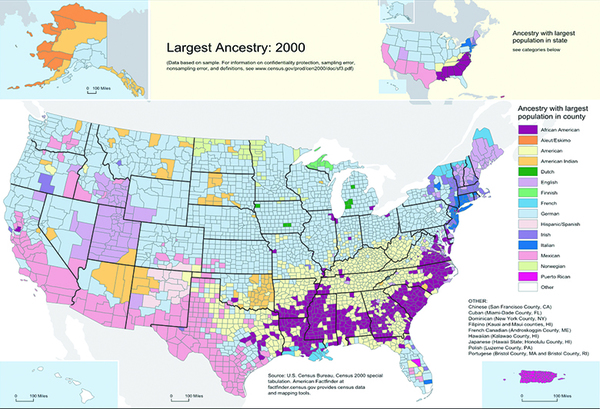| << Chapter < Page | Chapter >> Page > |
As the United States entered the twenty-first century, old disputes continued to rear their heads. Some revolved around what it meant to be American and the rights to full citizenship. Others arose from religious conservatism and the influence of the Religious Right on American culture and society. Debates over gay and lesbian rights continued, and arguments over abortion became more complex and contentious, as science and technology advanced. The clash between faith and science also influenced attitudes about how the government should respond to climate change, with religious conservatives finding allies among political conservatives who favored business over potentially expensive measures to reduce harmful emissions.
There is nothing new about anxiety over immigration in the United States. For its entire history, citizens have worried about who is entering the country and the changes that might result. Such concerns began to flare once again beginning in the 1980s, as Americans of European ancestry started to recognize the significant demographic changes on the horizon. The number of Americans of color and multiethnic Americans was growing, as was the percentage of people with other than European ancestry. It was clear the white majority would soon be a demographic minority ( [link] ).

The nation’s increasing diversity prompted some social conservatives to identify American culture as one of European heritage, including the drive to legally designate English the official language of the United States. This movement was particularly strong in areas of the country with large Spanish-speaking populations such as Arizona, where, in 2006, three-quarters of voters approved a proposition to make English the official language in the state. Proponents in Arizona and elsewhere argued that these laws were necessary, because recent immigrants, especially Hispanic newcomers, were not being sufficiently acculturated to white, middle-class culture. Opponents countered that English was already the de facto official language, and codifying it into law would only amount to unnecessary discrimination.
In 2010, Arizona passed a law barring the teaching of any class that promoted “resentment” of students of other races or encouraged “ethnic solidarity.” The ban, to take effect on December 31 of that year, included a popular Mexican American studies program taught at elementary, middle, and high schools in the city of Tucson. The program, which focused on teaching students about Mexican American history and literature, was begun in 1998, to convert high absentee rates and low academic performance among Latino students, and proved highly successful. Public school superintendent Tom Horne objected to the course, however, claiming it encouraged resentment of whites and of the U.S. government, and improperly encouraged students to think of themselves as members of a race instead of as individuals.
Tucson was ordered to end its Mexican American studies program or lose 10 percent of the school system’s funding, approximately $3 million each month. In 2012, the Tucson school board voted to end the program. A former student and his mother filed a suit in federal court, claiming that the law, which did not prohibit programs teaching Indian students about their culture, was discriminatory and violated the First Amendment rights of Tucson’s students. In March 2013, the court found in favor of the state, ruling that the law was not discriminatory, because it targeted classes, and not students or teachers, and that preventing the teaching of Mexican studies classes did not intrude on students’ constitutional rights. The court did, however, declare the part of the law prohibiting classes designed for members of particular ethnic groups to be unconstitutional.
What advantages or disadvantages can you see in an ethnic studies program? How could an ethnic studies course add to our understanding of U.S. history? Explain.

Notification Switch
Would you like to follow the 'U.s. history' conversation and receive update notifications?